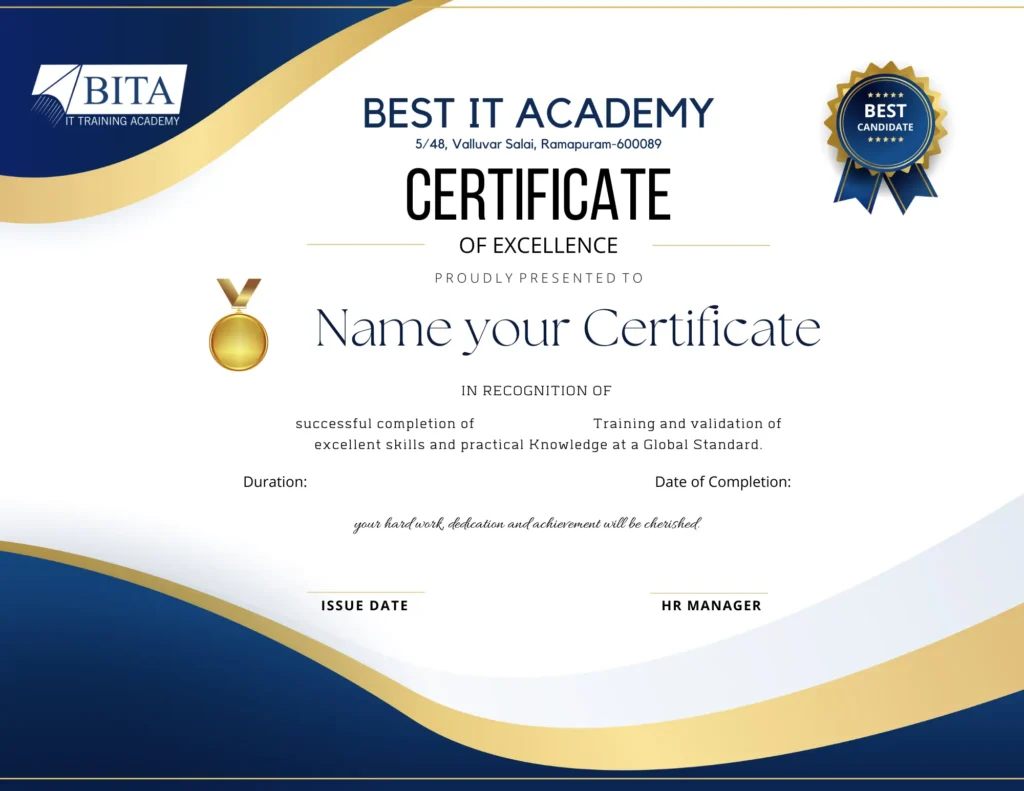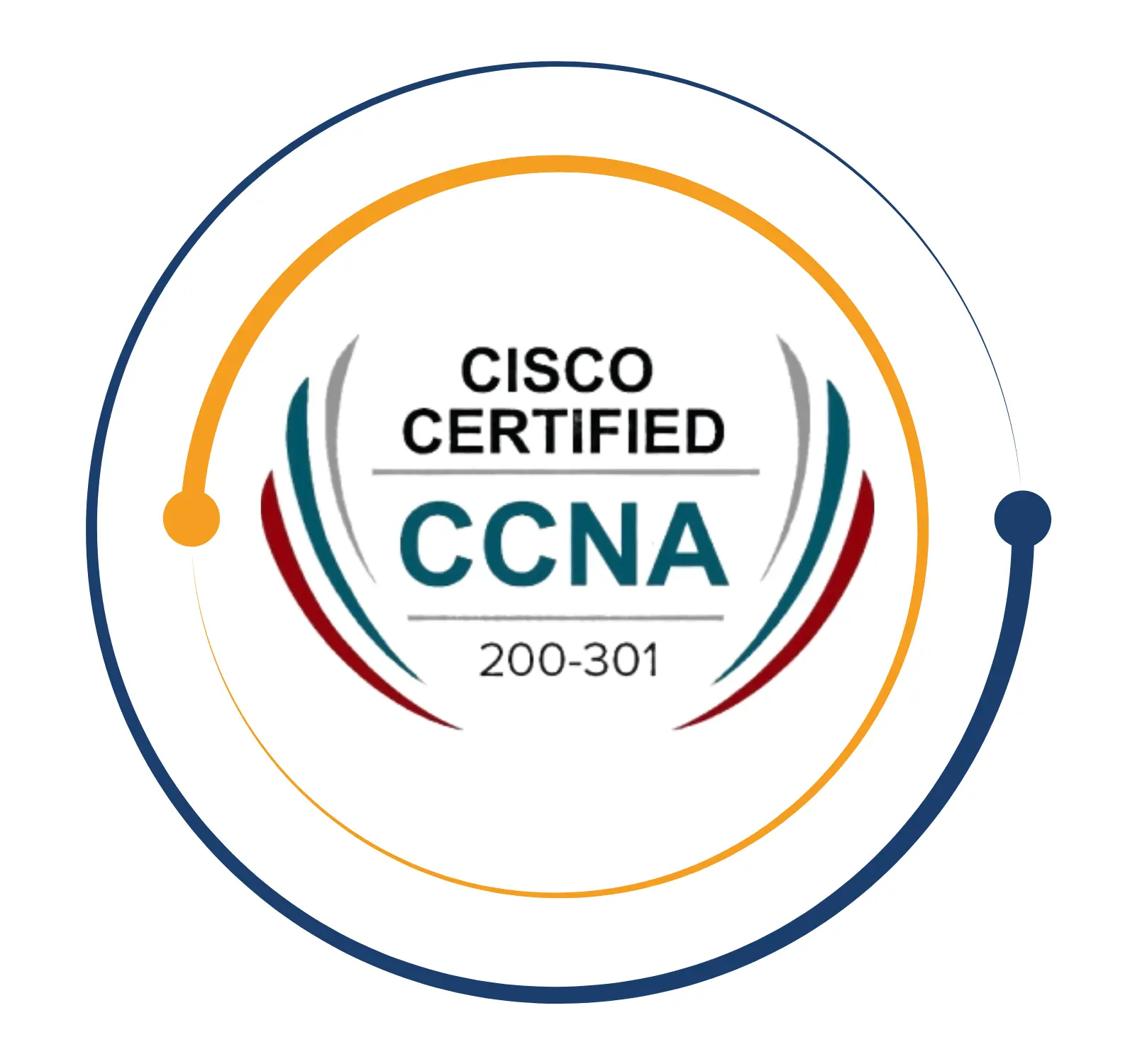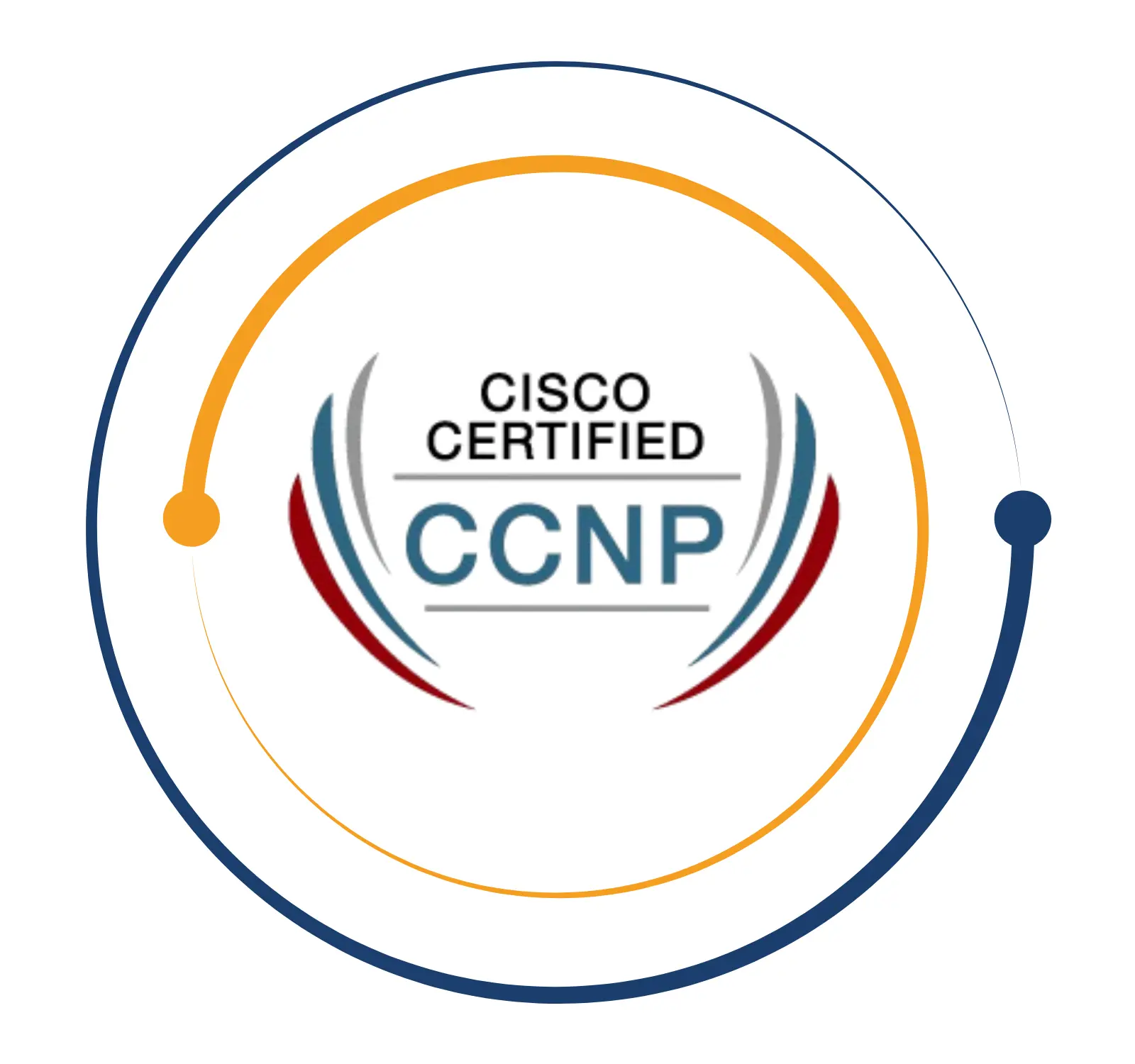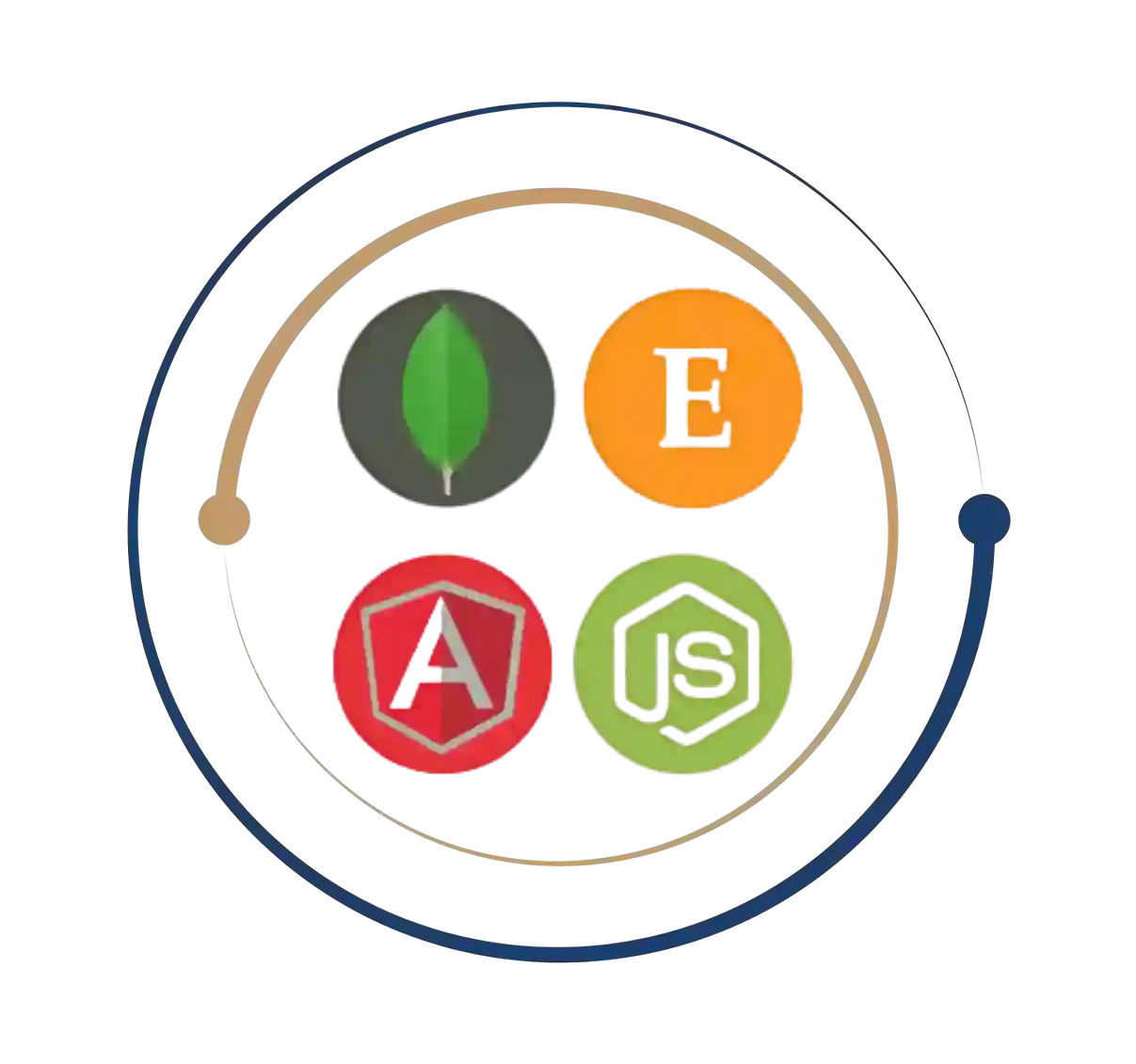Master Advanced Networking with CCNP Certification – Elevate Your Career to the Next Level!
CCNP Training in Chennai
BITA Academy provides the best CCNP training in Chennai, preparing networking professionals with the advanced skills needed to configure, secure, and manage enterprise networks. Our CCNP certification training covers advanced routing, switching, and troubleshooting techniques for complicated network systems. Our CCNP course advances IT professionals’ careers in networking by providing hands-on instruction and real-world case studies.
Our CCNP training in Chennai contains practical labs, expert coaching, and career-oriented modules to help you prepare for the Cisco Certified Network Professional (CCNP) certification exam. Whether you are a new network engineer or a seasoned professional, this course will help you achieve proficiency in advanced networking principles.
The Cisco Certified Network Professional (CCNP) is an advanced networking certification provided by Cisco that verifies the competence to implement and troubleshoot LAN, WAN, and VPN solutions. CCNP is an industry-recognized credential that certifies a networking professional’s knowledge of enterprise networking, security, automation, and advanced routing and switching.
The CCNP certification has several specialized tracks, including CCNP Enterprise, CCNP Security, CCNP Data Center, CCNP Collaboration, and CCNP Service Provider. This certification is suitable for network administrators, engineers, and information technology professionals wishing to advance their careers in enterprise networking.
CCNP Training in Chennai
BITA Academy provides the best CCNP training in Chennai, preparing networking professionals with the advanced skills needed to configure, secure, and manage enterprise networks. Our CCNP certification training covers advanced routing, switching, and troubleshooting techniques for complicated network systems. Our CCNP course advances IT professionals’ careers in networking by providing hands-on instruction and real-world case studies.
Our CCNP training in Chennai contains practical labs, expert coaching, and career-oriented modules to help you prepare for the Cisco Certified Network Professional (CCNP) certification exam. Whether you are a new network engineer or a seasoned professional, this course will help you achieve proficiency in advanced networking principles.
What is CCNP?
The Cisco Certified Network Professional (CCNP) is an advanced networking certification provided by Cisco that verifies the competence to implement and troubleshoot LAN, WAN, and VPN solutions. CCNP is an industry-recognized credential that certifies a networking professional’s knowledge of enterprise networking, security, automation, and advanced routing and switching.
The CCNP certification has several specialized tracks, including CCNP Enterprise, CCNP Security, CCNP Data Center, CCNP Collaboration, and CCNP Service Provider. This certification is suitable for network administrators, engineers, and information technology professionals wishing to advance their careers in enterprise networking.
Roles and Responsibilities in CCNP
After finishing CCNP training in Chennai, people can pursue a variety of careers in the IT networking industry. Some of the primary responsibilities are:
- Developing and implementing innovative network solutions.
- Configure and troubleshoot enterprise networking setups.
- Managing the LAN, WAN, and VPN infrastructures.
- Improving network security and automation capabilities.
- Monitor and maintain Cisco routers, switches, and firewalls.
- Ensure strong network availability and performance optimization.
- Implementing SDN solutions.
- Working on cloud-based networking designs.
- Working with IT teams to increase network security and efficiency.
The Cisco Certified Network Professional (CCNP) is an advanced networking certification provided by Cisco that verifies the competence to implement and troubleshoot LAN, WAN, and VPN solutions. CCNP is an industry-recognized credential that certifies a networking professional’s knowledge of enterprise networking, security, automation, and advanced routing and switching.
The CCNP certification has several specialized tracks, including CCNP Enterprise, CCNP Security, CCNP Data Center, CCNP Collaboration, and CCNP Service Provider. This certification is suitable for network administrators, engineers, and information technology professionals wishing to advance their careers in enterprise networking.
After finishing CCNP training in Chennai, people can pursue a variety of careers in the IT networking industry. Some of the primary responsibilities are:
- Developing and implementing innovative network solutions.
- Configure and troubleshoot enterprise networking setups.
- Managing the LAN, WAN, and VPN infrastructures.
- Improving network security and automation capabilities.
- Monitor and maintain Cisco routers, switches, and firewalls.
- Ensure strong network availability and performance optimization.
- Implementing SDN solutions.
- Working on cloud-based networking designs.
- Working with IT teams to increase network security and efficiency.
Get Instant Help Here
Enrolling in a CCNP training in Chennai at BITA Academy has various advantages. Earning a CCNP certification provides various benefits for networking professionals who want to further their careers. It demonstrates your competence in enterprise networking solutions, making you a desirable candidate for senior-level roles. CCNP-certified individuals frequently earn greater incomes and have more career prospects than those with merely entry-level qualifications. The certification demonstrates extensive knowledge of difficult networking principles such as advanced routing, switching, and troubleshooting. It also improves problem-solving abilities and allows experts to manage and optimize large-scale networks successfully. With the growing demand for competent network engineers, CCNP certification provides improved career advancement, job stability, and recognition in the IT industry. It also offers a bridge to more specialist certifications, such as CCIE, which can help you advance in your career.

Many major IT firms, including Cisco, Infosys, Wipro, TCS, HCL, and Accenture, hire CCNP-certified people for important networking positions. Businesses are adopting cloud and enterprise networking solutions, increasing the demand for Cisco networking specialists. The average salary of a CCNP-certified professional varies according to experience, region, and employment type. Here’s an estimated pay breakdown for India: Entry-level (0-2 years): ₹4,00,000 to ₹6,00,000 annually. Mid-level (2-5 years): ₹6,000 to ₹12,00,000 per year. Senior-level (5+ years): ₹12,00,000 to ₹20,00,000 per year. Network professionals with additional abilities in cloud computing, security, and automation should expect greater salaries and more prospects in the field.
What you will learn?
- Explain the different design principles used in an enterprise network
-
High-level enterprise network design such as 2-tier, 3-tier, fabric, and cloud
- High availability techniques such as redundancy, FHRP, and SSO
-
- Describe wireless network design principles
- Wireless deployment models (centralized, distributed, controller-less, controller-based, cloud, remote branch)
- Location services in a WLAN design
- Client density
- Explain the working principles of the Cisco SD-WAN solution
- SD-WAN control and data planes elements
- Benefits and limitations of SD-WAN solutions
- Explain the working principles of the Cisco SD-Access solution
- SD-Access control and data planes elements
- Traditional campus interoperating with SD-Access
- Interpret wired and wireless QoS configurations
- QoS components
- QoS policy
- Describe hardware and software switching mechanisms such as CEF, CAM, TCAM, FIB, RIB, and adjacency tables
- Describe device virtualization technologies
- Hypervisor type 1 and 2
- Virtual machine
- Virtual switching
- Configure and verify data path virtualization technologies
- a VRF
- GRE and IPsec tunneling
- Describe network virtualization concepts
- LISP
- VXLAN
- Layer 2
- Troubleshoot static and dynamic 802.1q trunking protocols
- Troubleshoot static and dynamic EtherChannels
- Configure and verify common Spanning Tree Protocols (RSTP, MST) and Spanning Tree enhancements such as root guard and BPDU guard
- Layer 3
- Compare routing concepts of EIGRP and OSPF (advanced distance vector vs. link state, load balancing, path selection, path operations, metrics, and area types)
- Configure simple OSPFv2/v3 environments, including multiple normal areas, summarization, and filtering (neighbor adjacency, point-to-point, and broadcast network types, and passive-interface)
- Configure and verify eBGP between directly connected neighbors (best path selection algorithm and neighbor relationships)
- Describe policy-based routing
- Wireless
- Describe Layer 1 concepts, such as RF power, RSSI, SNR, interference, noise, bands, channels, and wireless client devices capabilities
- Describe AP modes and antenna types
- Describe access point discovery and join process (discovery algorithms, WLC selection process)
- Describe the main principles and use cases for Layer 2 and Layer 3 roaming
- Troubleshoot WLAN configuration and wireless client connectivity issues using GUI only
- Describe wireless segmentation with groups, profiles, and tags
- IP Services
- Interpret network time protocol configurations such as NTP and PTP
- Configure NAT/PAT
- Configure first hop redundancy protocols, such as HSRP, VRRP
- Describe multicast protocols, such as RPF check, PIM and IGMP v2/v3
- Diagnose network problems using tools such as debugs, conditional debugs, traceroute, ping, SNMP, and syslog
- Configure and verify Flexible NetFlow
- Configure SPAN/RSPAN/ERSPAN
- Configure and verify IPSLA
- Describe Cisco DNA Center workflows to apply network configuration, monitoring, and management
- Configure and verify NETCONF and RESTCONF
- Configure and verify device access control
- Lines and local user authentication
- Authentication and authorization using AAA
- Configure and verify infrastructure security features
- ACLs
- CoPP
- Describe REST API security
- Configure and verify wireless security features
- 802.1X
- WebAuth
- PSK
- EAPOL
- Describe the components of network security design
- Threat defense
- Endpoint security
- Next-generation firewall
- TrustSec and MACsec
- Network access control with 802.1X, MAB, and WebAuth
- Interpret basic Python components and scripts
- Construct valid JSON-encoded files
- Describe the high-level principles and benefits of a data modeling language, such as YANG
- Describe APIs for Cisco DNA Center and vManage
- Interpret REST API response codes and results in payload using Cisco DNA Center and RESTCONF
- Construct an EEM applet to automate configuration, troubleshooting, or data collection
- Compare agent vs. agentless orchestration tools, such as Chef, Puppet, Ansible, and SaltStack
Weekdays
Mon-Fri
Online/Offline
1 hour
Hands-on Training
Suitable for Fresh Jobseekers
/ Non IT to IT transition
Weekends
Sat – Sun
Online/Offline
1.30 – 2 hours
Hands-on Training
Suitable for IT Professionals
Batch details
Week days
Mon-Fri
Online/Offline
1 hour
Hands-on Training
/ Non IT to IT transition
Sat – Sun
Online/Offline
1:30 – 2 hours
Hands-on Training
Why should you select us?






Why should you select Us?


















